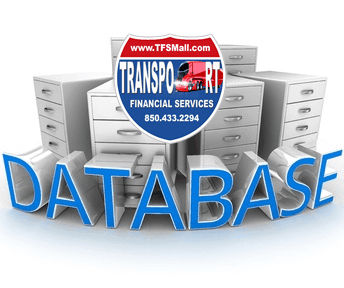Brief History of the Brokers
The transportation industry has changed drastically since the Interstate Commerce Commission “ICC Termination Act of 1995” which deregulated the trucking and the transportation industry. Prior to 1980 there was only one authorized broker operating in the United States, but after 1995, there have been thousands of Property Brokers authorized to broker property. Within the U.S. Brokering has become an integral part of the transportation mix. Brokers perform an important function within the logistics and transportation industry. Carriers rely on brokers to supply hem with freight, both as front haul as well as back-haul freight.
 Shippers look to brokers to fulfill the important function of supplying the many trucks required to meet their shipping needs. The small fleets and owner-operators find that the broker can supply freight needed by the carrier, thereby, relieving the carrier. Thereby relieving the carrier need of hiring a sales force to find freight for their company. Shippers on the other hand may need hundreds of trucks a day to move their freight. Rather than calling carriers, the shippers can have one call, find one or one hundred trucks.
Shippers look to brokers to fulfill the important function of supplying the many trucks required to meet their shipping needs. The small fleets and owner-operators find that the broker can supply freight needed by the carrier, thereby, relieving the carrier. Thereby relieving the carrier need of hiring a sales force to find freight for their company. Shippers on the other hand may need hundreds of trucks a day to move their freight. Rather than calling carriers, the shippers can have one call, find one or one hundred trucks.
The modern day computer network provides the broker with a “virtual terminal” with thousands of trucks at their fingertips. With the Internet , they can post the number of trucks, and type of equipment they will need to meet their shipping needs at a moment’s notice. The tendency is to quote the lowest rate possible, but remember it is not always the lowest rate that gets the freight. Having a following of owner operators who deliver on time and for a reasonable rate, is the best sales tool you possess.
In addition, a user-friendly web site is an important asset in the modern transportation market place.
Frequently Asked Questions:
What is a Truck Broker?
The technical terminology for what is referred to as a “Truck Broker” is reality, a “third part” logistics provider. The Federal Motor Carrier Safety Administration (FMCSA) would classify it as a “Property Broker”. The other type broker is referred to as a “Household Goods Broker”.
A third party logistics provider is rarely or if ever shown as a party to the Bill of Lading, which is the controlling document in the movement of freight in interstate commerce. Therefore, a broker should have well written “rate agreement, linking you directly with the shipment.
What is Double Brokering?
The hotly debated issue in today’s transport industry is “double brokering”. Although this practice is not spelled out as illegal practice in any of the FMCSA’s broker regulation, it is not a good practice, and many carriers will not accept any such shipment. Most importantly delivering carriers will net get paid. The underlying surety bond form, BMC 84 or trust agreement BMC 85 does not allow for payment to a broker, only payment to a regulated carrier or shipper.
What is a Truck Broker?
The technical terminology for what is referred to as a “truck broker” is in reality a third party to a transportation contract. The broker is in fact a party inserted between a carrier and the shipper.
In essence, the property broker assumes the sales and the billing position for the carrier, and receives percentages of the truck rate for providing the services. The carrier retains the responsibility for all regulatory, safety, liability insurance,
cargo insurance and all other legal responsibility for the transportation act. Although the shipper pays the broker direct, technically he is paying for the transportation services only.
What is the role of a Property Broker in Interstate Commerce?
The essential duty of a broker in interstate commerce is to become a third party in a transportation transaction. In a traditional movement of freight the shipper would contact a carrier and contract with him or her to deliver a sum of freight for a set amount of money (a rate).
When a broker enters the picture, the circumstances change drastically, no longer is the trucker the second party to the movement, but the “broker” becomes the second party, and the trucker becomes the “third party” to the transaction.
The broker assumes the responsibility of paying the trucker for the transportation charges. In one sense, the transportation pie becomes smaller because the broker has inserted himself in the middle of the transaction, but assumes the reconcilability of paying the carrier and collecting from the shipper. The carrier is assured of being paid, and is relieved of the duty of billing the shipper, and they can spend the time driving and dong what they do best.
In return, the carrier relives themselves of the problem of finding freight, and worrying about collecting their money from the shipper. The shipper is in turn relieved of the responsibility of finding carriers and negotiating with each one what their rate will be.
The most important responsibility of the Property Broker is the selection of a “Bona Fide Carrier” authorized by the Federal Motor Carrier Safety Administration (FMCSA) to operate as a: Contract or Common Carrier in interstate commerce.
It is solely the duty of the authorized property broker to insure that the carrier they select has a valid Motor Carrier (MC) number, and US DOT number, and is in good standing with he FMCSA. Th broker must be informed as to their cargo and liability insurance coverage before the shipper releases freight to the carrier.
Background and Experience
It would be virtually impossible to produce a “Transportation Guide” that would cover all aspects of freight brokering from the novice to the experienced broker agent. Therefore, we attempted to produce a learning manual that would be user friendly to the complete novice as well as to the person with experience in the trucking and shipping industry.
It is a decided disadvantage for a complete novice entering the freight brokerage transportation industry. The same would be true for a novice entering into any other field of endeavor now to that person.
The general public is completely unfamiliar with the world off freight transportation. In fact, May 2016 I was invited as an “Expert Witness” to the FMCSA Round Table on Financial Responsibility as only one of two financial because of the recent law
That increased bonds/trust from $10,000 to $75,000 and they had concerns that financials under financed the bonds and would amass claims that they would be able to pay. They were wrong, but the experience in listening to all of the major insurance companies
That provided BMC 84 Bonds provided me a new level of education. Being in a room filled with transportation professionals and attorneys was truly educational.
This is said not to demand the general public. The same public could be true to any person entering a new field. Anyone in a new field could be taken advantage of during the learning curve. This is why “Transportation Consultant and Attorneys must be utilized.
This is why the Transportation Guide designed with real cases of day to day operation has Questions and Answers that are comprehensively structured for carriers, freight brokers, freight forwarders, shippers, and intended to help the newcomer as well as the experienced veterans of the transportation wars.








